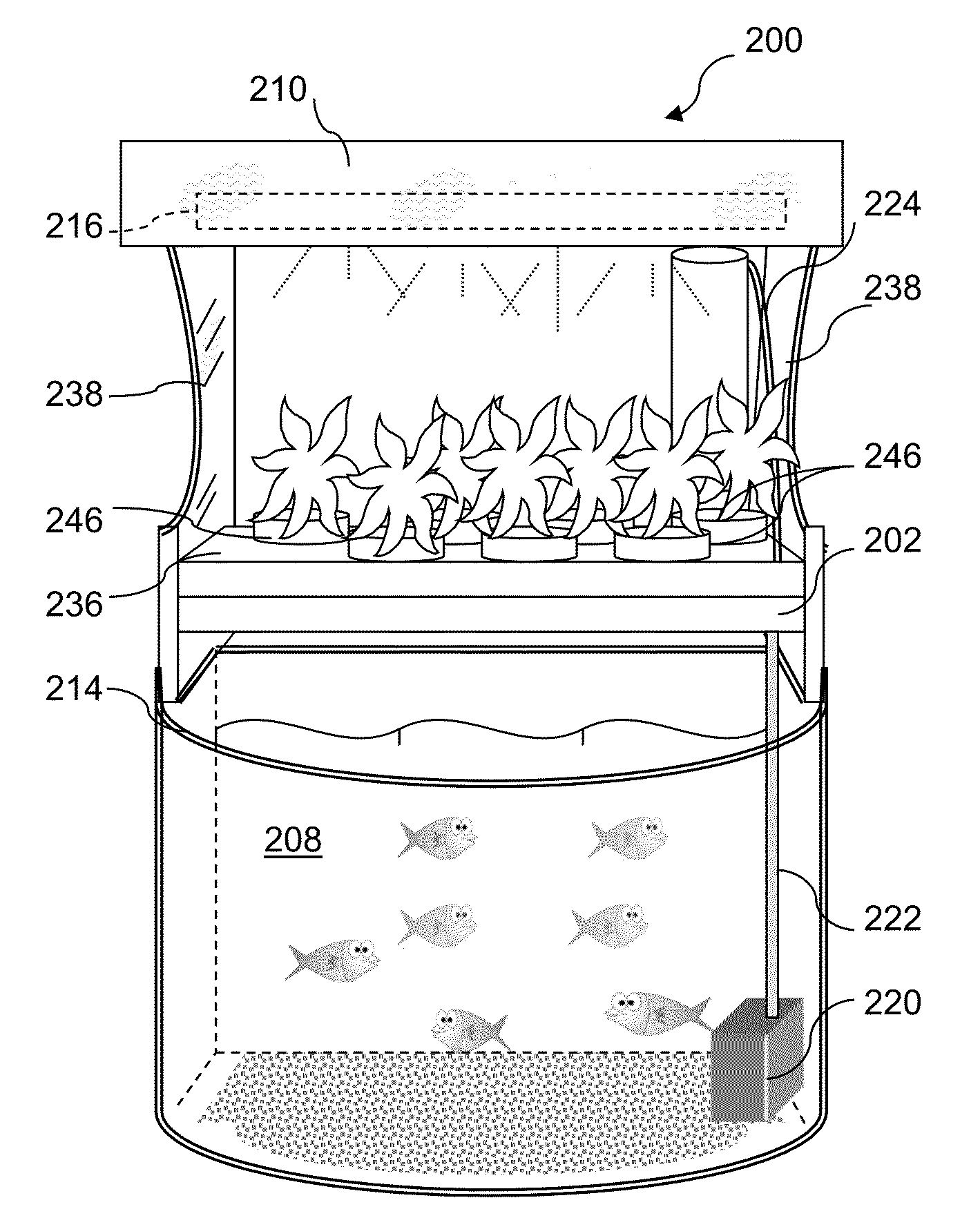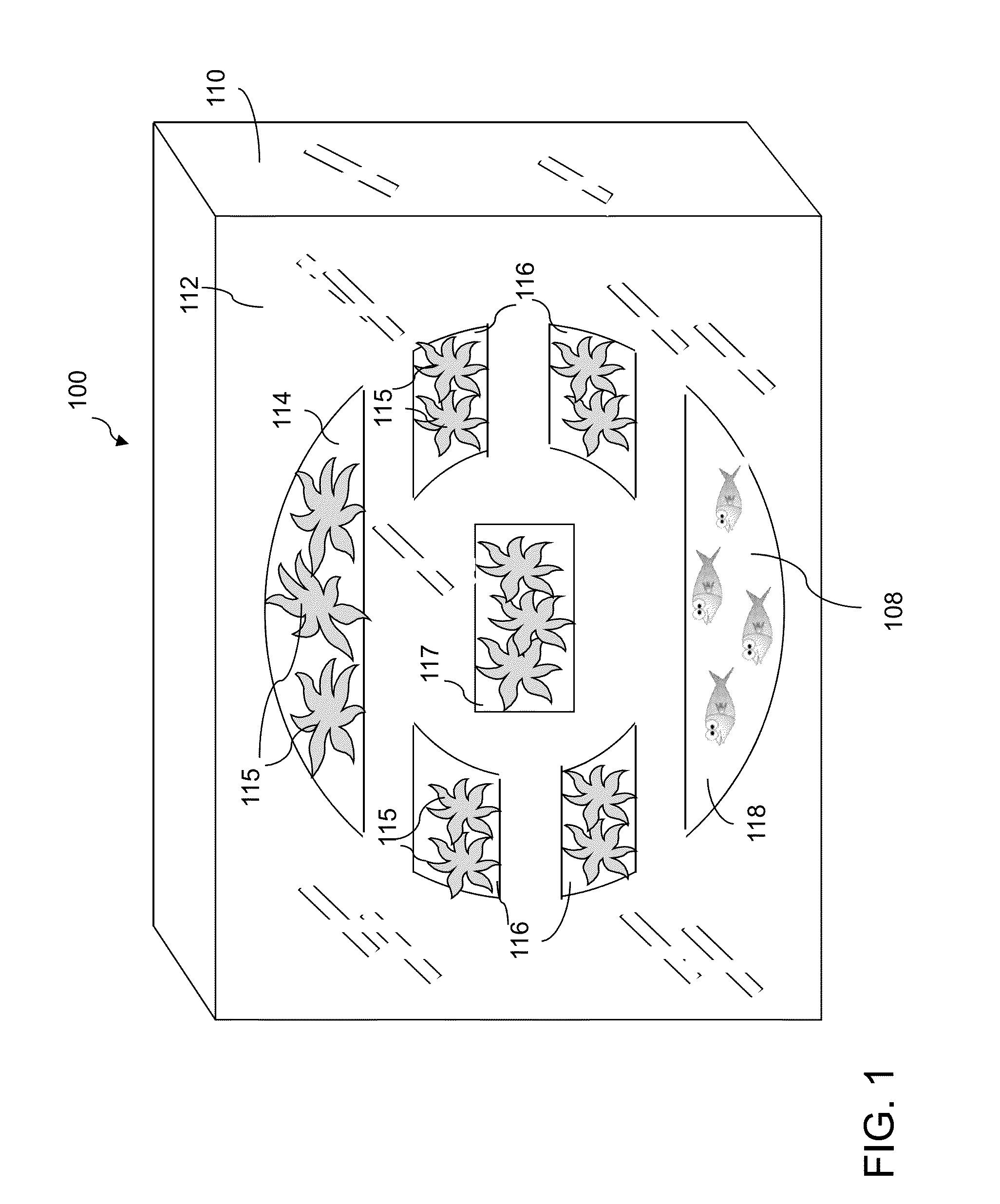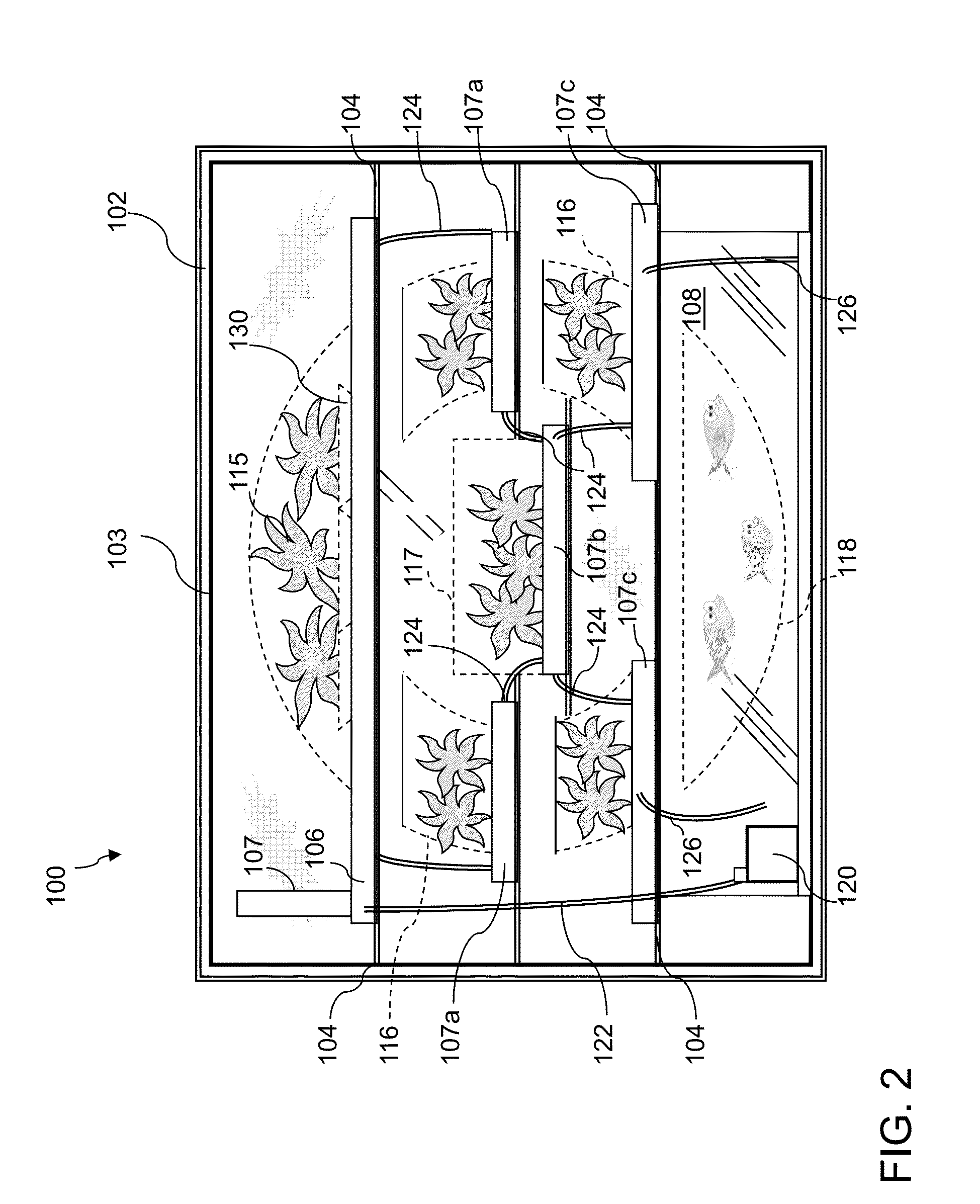Aquaponics system
a technology of aquaponics and water, applied in the field of aquaponics system, can solve the problems of local extinction, unregulated killing of wild animals, and increasing the view of inhumane and environmentally unfriendly large-scale fish farming
- Summary
- Abstract
- Description
- Claims
- Application Information
AI Technical Summary
Benefits of technology
Problems solved by technology
Method used
Image
Examples
first embodiment
[0023]FIGS. 1 and 2 illustrate the inventive aquaponics assembly 100, which includes frame 102 with a plurality of horizontal supports 104, which are configured to support upper tray 106, lower mid-level trays 107a, 107b and 107c. Each of the trays is a water-containing structure for supporting a plurality of media containers 130 within which plants 115 may be grown. As illustrated, an aquarium 108 for housing aquatic fauna (e.g., fish or crayfish) is disposed in the lower portion of the assembly 100, however, in some embodiments, multiple aquaria may be placed at different locations within the assembly providing the frame 102 and horizontal supports 104 are structurally sufficient for supporting the weight of the aquarium and water. An outer skin 110 formed from sheet metal, wood or plastic paneling, stretched fabric, or other sheet-like material may be attached to the frame 102 to define a top, sides and front. When the aquaponics assembly 100 is installed in or near a residence o...
second embodiment
[0027]the aquaponics system is illustrated in FIGS. 3-7. This assembly 200 may be used to retrofit aquariums that are commonly sold in pet supply stores to provide an educational and entertaining way to keep fish or other aquatic animals and grow decorative plants or herbs in a compact structure. Assembly 200 is a frame structure consisting of side panels 238, a hood face 210 and top 232, which support a tray 202 adapted for retaining water. The lower edges 206 of side panels 238 are configured to sit stably on top of the aquarium upper rim 214. In the preferred embodiment, assembly 200 is formed by molding and / or machining a plastic or polymer such as polypropylene or similar material, making it lightweight and easy to clean, as well as being inexpensive to manufacture. Side panels 238 are shown with a curved cutout at the front of the assembly. This cutout facilitates access to the plants as well as creating an attractive structure. Different designs may be used to enhance both th...
PUM
 Login to View More
Login to View More Abstract
Description
Claims
Application Information
 Login to View More
Login to View More - R&D
- Intellectual Property
- Life Sciences
- Materials
- Tech Scout
- Unparalleled Data Quality
- Higher Quality Content
- 60% Fewer Hallucinations
Browse by: Latest US Patents, China's latest patents, Technical Efficacy Thesaurus, Application Domain, Technology Topic, Popular Technical Reports.
© 2025 PatSnap. All rights reserved.Legal|Privacy policy|Modern Slavery Act Transparency Statement|Sitemap|About US| Contact US: help@patsnap.com



